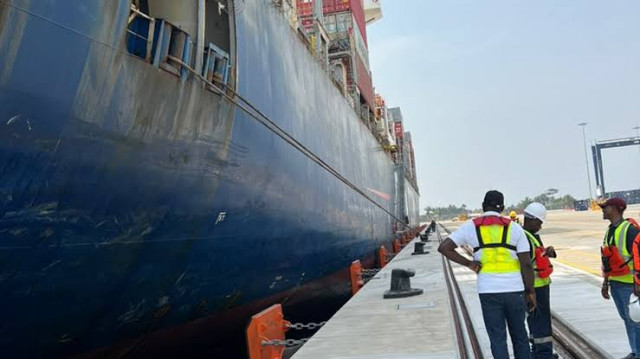Barring any unexpected occurrences, three major oil marketers are anticipating the arrival of vessels carrying imported Premium Motor Spirit, commonly known as petrol, this week.
Approximately 141 million litres of petrol are being transported to Nigeria by vessels following the full deregulation of the downstream oil sector by the Federal Government.
The recent increase in the pump prices of petrol produced by the Dangote Petroleum Refinery and released by the Nigerian National Petroleum Company Limited on Monday has created room for petrol imports.
The Nigerian Midstream and Downstream Petroleum Regulatory Authority has declared that all imported petrol will be subjected to at least three major tests by the agency before being allowed for sale across the country.
On Monday, NNPC announced that it would sell the petrol lifted from the Dangote refinery at a price above N1,000/litre in the far north.
Its spokesperson, Olufemi Soneye, disclosed in a statement that the price might go for as high as N1,019/litre in Borno State and N999.22 in Abuja, Sokoto, Kano, and others.
In Oyo, Rivers, and other areas in the South, the price of fuel will be N960 per litre. The lowest price, according to an infographic released by the NNPC, is N950 in Lagos and its environs.
A major marketer confirmed that the deregulation of the downstream sector had fully set in, stating that three dealers are expecting their products (PMS) this week.
Each vessel would bring in about 35,000 metric tonnes of PMS, meaning the three dealers are expecting about 105,000 metric tonnes of PMS this week, all other things being equal.
According to the conversion rate of 1,341 litres to one metric tonne, the marketers are bringing in approximately 141 million litres of petrol.
Most marketers typically import three parcels for this type of transaction, with the lowest parcel being around 35,000 metric tonnes of Premium Motor Spirit (PMS).
Due to the nature of the business, marketers are bringing in between two and three parcels. This week, about three marketers are expected to bring in products.
However, these imports are subject to regulatory authorities' influence, and the NMDPRA must assess the quality, flash points, and other factors before the product is allowed to be sold.
The imports are not brought in all at once, as each parcel is brought in separately, with storage implications.
The NMDPRA spokesperson stated that marketers with approved import licences were free to import PMS, but the products must undergo three major tests by the agency before they are authorised to offload at their terminals.
The spokesman also said the agency's representatives would also inspect the smaller vessels before they bring the products further inland to Nigeria.




















